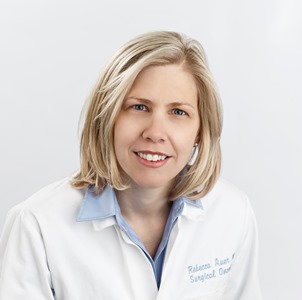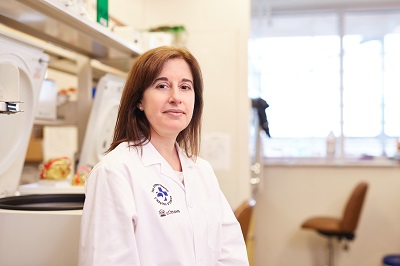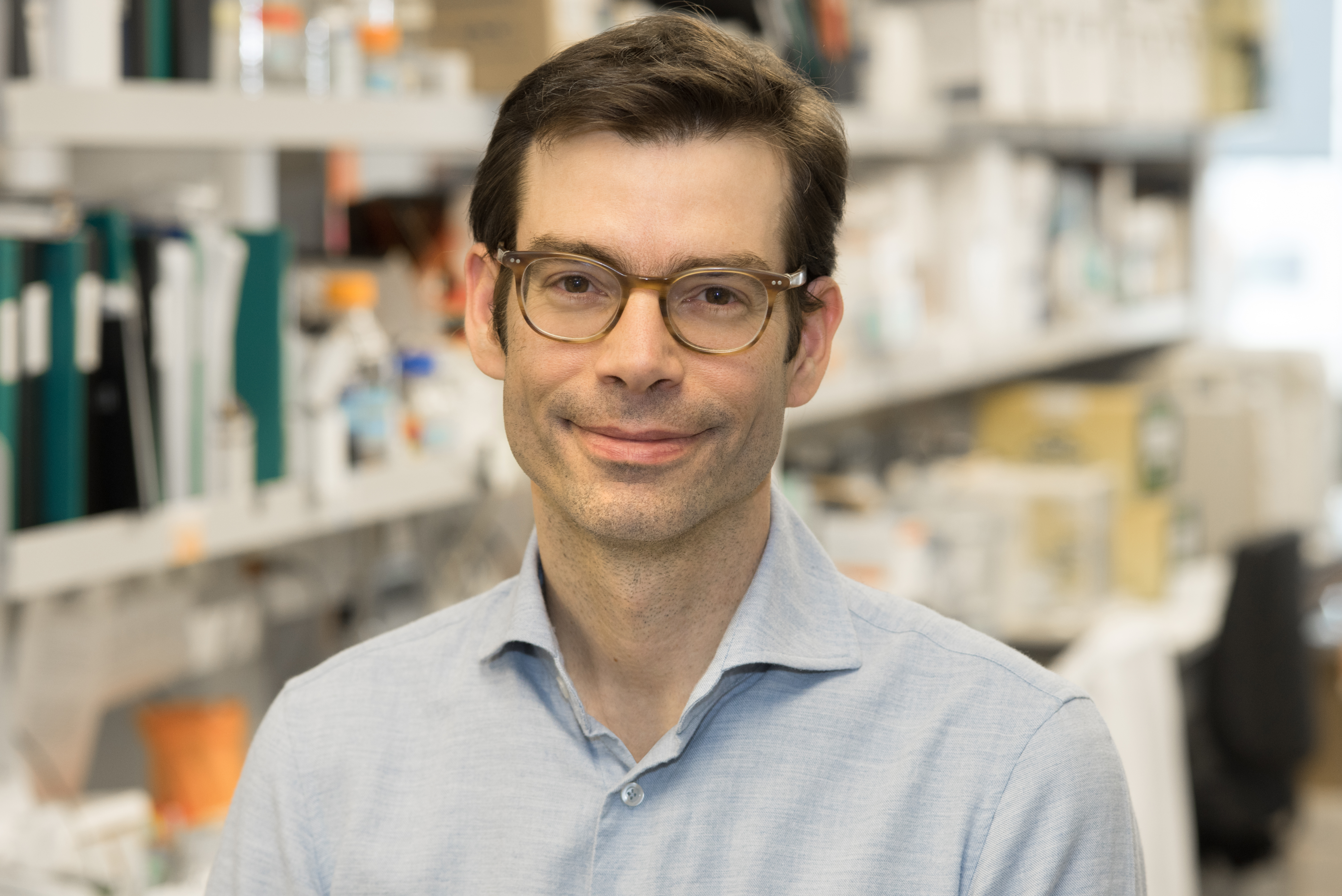 “Cellular immunotherapy such as CAR T-cell therapy has been a game-changer for people with blood cancer and solid tumours are the next frontier,” said Dr. Rebecca Auer. Canadians with biliary tract cancer (cholangiocarcinoma and gallbladder) will have the first chance to benefit from a new made-in-Canada approach to personalized cellular immunotherapy, thanks to a $7.4 million grant from the Canadian Cancer Society and the Canadian Institutes of Health Research.
“Cellular immunotherapy such as CAR T-cell therapy has been a game-changer for people with blood cancer and solid tumours are the next frontier,” said Dr. Rebecca Auer. Canadians with biliary tract cancer (cholangiocarcinoma and gallbladder) will have the first chance to benefit from a new made-in-Canada approach to personalized cellular immunotherapy, thanks to a $7.4 million grant from the Canadian Cancer Society and the Canadian Institutes of Health Research.
The grant will support the new Canadian Cholangiocarcinoma Collaborative (C3) and its flagship clinical trial of Tumour-Infiltrating Lymphocytes (TILs), to be conducted at The Ottawa Hospital and Centre hospitalier de l’Université de Montréal (CHUM). This therapy involves extracting immune cells (called lymphocytes) from a patient’s tumour, purifying and expanding them in the lab and then injecting them back into the same patient along with immune-stimulating drugs.
“Cellular immunotherapy such as CAR T-cell therapy has been a game-changer for people with blood cancer and solid tumours are the next frontier,” said surgical oncologist Dr. Rebecca Auer, co-lead of C3, head of cancer research at The Ottawa Hospital and professor at the University of Ottawa. “We believe we can make a difference for people with biliary tract cancer and pave the way for breakthroughs in other cancers as well.”
C3 will also create an immunotherapy discovery pipeline for cholangiocarcinoma and provide access to a “Research Navigator” who will help patients across the country access clinical trials, biomarker studies, biobank registries and other research opportunities.
 “Research on biliary tract cancer is urgently needed because the survival rate is so low, at less than two percent over five years when diagnosed at advanced stage,” said Dr. Carolina Ilkow.“Research on biliary tract cancer is urgently needed because the survival rate is so low, at less than two percent over five years when diagnosed at advanced stage,” said Dr. Carolina Ilkow, senior scientist at The Ottawa Hospital, associate professor at the University of Ottawa and co-lead of C3. “Our unique collaboration will bring basic scientists and clinicians together with patients and caregivers to develop and provide access to new immunotherapies.”
“Research on biliary tract cancer is urgently needed because the survival rate is so low, at less than two percent over five years when diagnosed at advanced stage,” said Dr. Carolina Ilkow.“Research on biliary tract cancer is urgently needed because the survival rate is so low, at less than two percent over five years when diagnosed at advanced stage,” said Dr. Carolina Ilkow, senior scientist at The Ottawa Hospital, associate professor at the University of Ottawa and co-lead of C3. “Our unique collaboration will bring basic scientists and clinicians together with patients and caregivers to develop and provide access to new immunotherapies.”
Survivor inspires hope and innovative clinical trial
C3 researchers are hoping to build on initial success with TIL immunotherapy seen in patients like Melinda Bachini, who was diagnosed with cholangiocarcinoma in 2009. The paramedic and mother of six from Billings, Montana had exhausted all conventional treatment options when she enrolled in a clinical trial of TIL therapy at the U.S. National Cancer Institute in Maryland in 2012. She had a remarkable response and continues to live a healthy life without any ongoing cancer treatment. Melinda is the lead patient partner and co-investigator with C3.
“Research saved my life and gave me the chance to raise my kids,” said Melinda, who now works in advocacy for the Cholangiocarcinoma Foundation. “If researchers can learn why this therapy worked so well for me, hopefully they will be able to make it work for others.”
 “Research saved my life and gave me the chance to raise my kids,” said Melinda Bachini. “If researchers can learn why this therapy worked so well for me, hopefully they will be able to make it work for others.” Photo credit: Carolina LindsayC3 investigator Dr. Simon Turcotte has high hopes for TIL immunotherapy as well. In fact, he played a key role in Melinda’s treatment as part of his research training in the United States.
“Research saved my life and gave me the chance to raise my kids,” said Melinda Bachini. “If researchers can learn why this therapy worked so well for me, hopefully they will be able to make it work for others.” Photo credit: Carolina LindsayC3 investigator Dr. Simon Turcotte has high hopes for TIL immunotherapy as well. In fact, he played a key role in Melinda’s treatment as part of his research training in the United States.
“Normally, TILs are outgrown and inhibited by cancer cells in solid tumours; with TIL immunotherapy, we grow TILs into billions outside the body and transfuse those cells into patients who have been immunologically prepared for this, and further give immune stimulants to support this live therapy in killing cancer cells throughout the body,” said Dr. Simon Turcotte, surgical oncologist specializing in liver and pancreatic cancer and leader of cellular immunotherapy at CHUM. “Unfortunately, access to TIL therapy is very limited in Canada currently.”
C3 is planning a clinical trial of TIL therapy for 15 cholangiocarcinoma patients, a first in Canada for this type of cancer. Initial cell manufacturing will take place at CHUM’s Unit for Cell Production followed by The Ottawa Hospital’s Biotherapeutics Manufacturing Centre. Eventually, the goal is to enable hospitals across the country to produce TILs, building on the “made-in-Canada” approach for CAR-T therapy for blood cancer pioneered by the Canadian-Led Immunotherapies in Cancer (CLIC) program.
Team approach key
C3 includes more than 30 scientists, clinicians, patients and caregivers across Canada, in addition to partners in the United States. Initial C3 partner institutions include The Ottawa Hospital, University of Ottawa, CHUM, BC Cancer Research Institute, Ontario Institute for Cancer Research, University Health Network, Sunnybrook Hospital, London Health Sciences Centre, McGill University, McMaster University, Queen’s University, National Institutes of Health, and the Cholangiocarcinoma Foundation.
 "With TIL immunotherapy, we grow TILs into billions outside the body and transfuse those cells into patients who have been immunologically prepared for this, and further give immune stimulants to support this live therapy in killing cancer cells throughout the body,” said Dr. Simon Turcotte.The main investigators, Drs. Carolina Ilkow, Rebecca Auer and Simon Turcotte, have and continue to be mentored by co-investigator Dr. John Bell, who is the Founder and Scientific Director of BioCanRx, Canada’s Immunotherapy Network.
"With TIL immunotherapy, we grow TILs into billions outside the body and transfuse those cells into patients who have been immunologically prepared for this, and further give immune stimulants to support this live therapy in killing cancer cells throughout the body,” said Dr. Simon Turcotte.The main investigators, Drs. Carolina Ilkow, Rebecca Auer and Simon Turcotte, have and continue to be mentored by co-investigator Dr. John Bell, who is the Founder and Scientific Director of BioCanRx, Canada’s Immunotherapy Network.
Additional co-investigators include Melinda Bachini, Dr. Laszlo Radvanyi, Dr. Trevor Pugh, Dr. Brad Nelson, Dr. Robert Holt, Dr. Jennifer Quizi, Dr. Natasha Kekre, Dr. Carmen Loiselle, Dr. Rachel Goodwin, Dr. Arif Awan, Dr. Jad Abou-Khalil, Dr. Catherine Forse, Dr. Cynthia Walsh, Dr. Paul Karanicolas, Dr. Michael Raphael, Dr. Sean Bennett, Dr. Sharlene Gill, Dr. Peter Kim, Dr. Francine Aubin, Dr. Steve Welch, Dr. Pablo Serrano, Dr. Faiyaz Notta, Dr. Jennifer Knox, Dr. Steve Gallinger, Dr. George Zogopoulos, Dr. Steven A. Rosenberg and Dr. Leonard Angka.
C3 also includes patient advocates Adam Auer, Sylvie Breton, Neil Marr, Ambuj Srivastava, Scott Stennett and Judit Zubovits.
The Ottawa Hospital - Inspired by research. Driven by Compassion.
The Ottawa Hospital (TOH) is one of Canada’s top learning and research hospitals where we are guided by our vision to provide the world-class and compassionate care we would all want for our loved ones. Our multi-campus hospital, affiliated with the University of Ottawa, is home to the Regional Trauma Centre and Cancer Centre, and to discoveries that are adopted globally. Backed by generous support from the community, we are focused on reshaping the future of health care to improve the health of our diverse population of patients from Eastern Ontario, Western Quebec, and Nunavut. For more information about research at The Ottawa Hospital, visit ohri.ca.
Media contact
Jenn Ganton
jganton@ohri.ca
613-614-5253
Contact the Canadian Cholangiocarcinoma Collaborative directly: c3@ohri.ca
